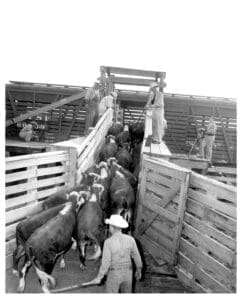By Chris McClure, Contributing Editor
Juliet said to Romeo: “What’s in a name? That which we call a rose by any other name would smell as sweet.”
Sometimes I wonder why we put so much stock in a name. Shakespeare had it right in the words of Juliet; the label on the outside doesn’t change what’s in the package, yet companies spend billions of dollars every year promoting names. Most large corporations employ firms that test product names on focus groups before they will consider them for a product label. Can you imagine being part of a panel in which you have a scorecard in front of you as you are asked, “Which name do you prefer, Resalto or Xarelto?” I probably should put a copyright mark after both of those since I think they are likely owned by some drug company.
I was taught at a young age that the only thing I will take from this old life is my name. I’m sure most of you raised with the values of rural America heard something similar while growing up. Our word is our bond and our name is the only thing will we truly ever own. Those are strong values predicated on a system that recognizes the worth of the individual. I’m not so sure they are recognized by most of the world anymore and oftentimes I wonder if there are growing numbers within the cattle industry who have lost those values as well. If not, why do we spend so much time fighting each other over terms like organic or grass fed? Those marketing terms are designed to appeal to specific demographics with which the concept resonates. They are crafted to sell a product.
Come to think of it, we likely laid the groundwork for the current battle with plant-based patties or lab-grown meats with our own internal battles mentioned above. We fragmented the marketplace with labels, and now we recoil in horror that someone outside the industry would exploit the cracks we created. I don’t think any amount of Elmer’s Glue will fix the issue now; we will have to live with it.
Could it be that part of the market downturn we are currently facing is due as much to our own destructive tendencies as it is to the perceived “taking advantage” of a terribly destructive fire to manipulate markets? Maybe the huge pools of investor money that “play the game” of the futures market as a way to make fast money are capitalizing on the perception that beef will lose market share to other products such as plant-based patties, and therefore is worth less.
It is my understanding that the introduction of a plant-based Whopper increased sales of the beef-based analog that has been around for years. From a strictly business standpoint I have to applaud Burger King for their move. Their attempt to meet the artificially stimulated demand for meat alternatives actually helped them sell more beef! My hat is off to their artificial win. In the terminology of my son who enjoys a game of eight-ball, “slop counts.”
It’s time we jump on board as an industry. Branding can no longer be a niche, but must become mainstream. When was the last time you saw a package containing chicken that didn’t have some type of branding on the outside? We need to embrace this world we have created in which anonymity is no longer acceptable. Meat is not just meat; plant-based burgers are not beef. Differentiation is the key to product acceptance – just ask any tattooed and pierced vagrant you see on the street. Well, maybe that wasn’t a particularly good example, or maybe it is – again, plant-based burgers are not beef, but they do stand out as a differentiated product.
During the many years I worked for an allied industry company, I refused to mention my competitors by name. I was occasionally asked who my competition was; my response was usually, “I have no competitors, but there are a few pretenders out there who aspire to be us.” We give power to the competition by repeating their name endlessly. We give them credibility by admitting they are our competitors.
Part of my business philosophy is to play my game to the best of my ability rather than focus on defending against the tactics of others. We give power by constantly thinking about defense rather than forcing the other guy to do the same. Always being on defense is acknowledging the competition as being powerful enough to beat you. Maybe they are, but they will have to run hard and execute flawlessly if I play my game as planned.
Branding cattle is, by nature, defensive. We put a brand on the animal to signify ownership in the event it strays or is stolen. Instead, we need to think of our brand in terms of our reputation. If it carries our mark, the significance should be that I stand behind it; I put my best in it; it represents me. In order to feel comfortable doing that, we may need to think long and hard about the product coming out of our gates and off the truck.
I don’t think we need hundreds of branded products to further confuse the consumer. I do think we need to consolidate our efforts in order to compete. The “new normal” of a cash bid reflecting the discounted value of a Select animal may drive the change.





